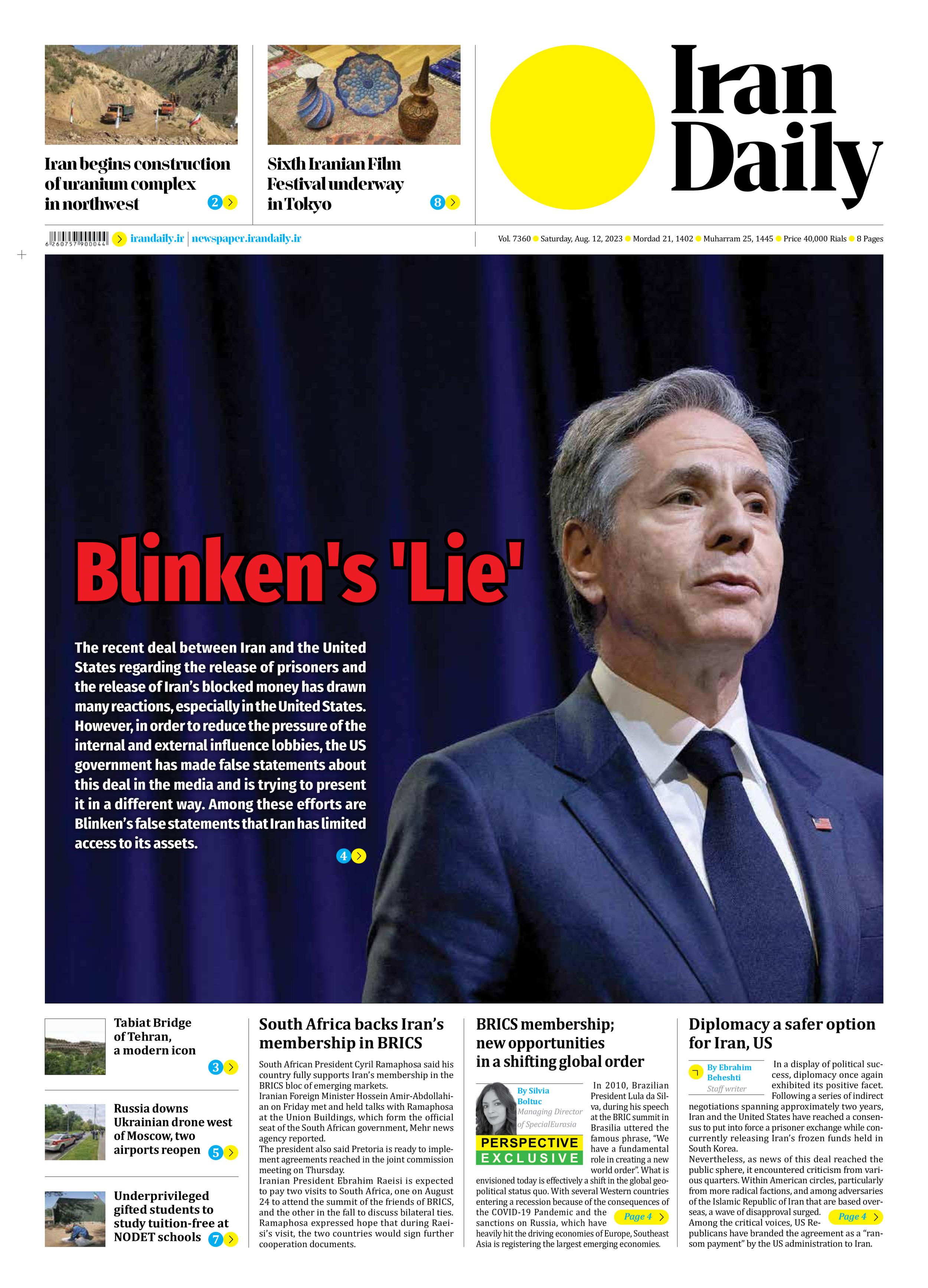
BRICS membership; new opportunities in a shifting global order
By Silvia Boltuc
Managing Director of SpecialEurasia
In 2010, Brazilian President Lula da Silva, during his speech at the BRIC summit in Brasilia uttered the famous phrase, “We have a fundamental role in creating a new world order”. What is envisioned today is effectively a shift in the global geopolitical status quo. With several Western countries entering a recession because of the consequences of the COVID-19 Pandemic and the sanctions on Russia, which have heavily hit the driving economies of Europe, Southeast Asia is registering the largest emerging economies.
Although the conflict in Ukraine seems to recreate the division of the world into two blocks as during the Cold War period, the Western world appears cohesive while a second block is formed by a heterogeneous set of powers with very different political systems, economies, cultures, and religious profiles. The goal of these powers is to sit at the negotiating table as equals and create economic growth and a balance for the benefit of the interests of all countries involved.
Against the backdrop of these momentous changes are new organisations such as the BRICS. Established in 2010, the original acronym ‘BRIC’ was coined in 2001 by Goldman Sachs economist Jim O’Neill to describe fast-growing economies that would collectively dominate the global economy by 2050. According to Aaron O’Neill, combined, the BRICS bloc had a GDP of over $26.03 trillion in 2022, which is slightly more than the United States. It is predicted that China’s GDP will overtake that of the US by the end of the 2020s to become the largest economy in the world. Meanwhile, some estimate that India will also overtake the US around the middle of the century.
One of the key topics on the BRICS agenda is to conduct more trade among member nations in local currencies and reduce the reliance on the US dollar. As a consequence of Washington removing Russian banks from SWIFT, several Eurasian countries already exchanged gas with local currencies last year.
According to Jo Sullivan, a former White House economist, BRICS countries collectively export more than they import. They do not need to borrow money from non-BRICS nations like the US or the EU to import goods. So, the rest of the world would have no source of leverage on them.
At the closing ceremony of the BRICS summit dubbed “Iran and BRICS: Prospects for Partnership and Cooperation” at the Foreign Ministry’s Institute for Political and International Studies in Tehran on August 8, 2023, Iran’s Foreign Minister Hossein Amir-Abdollahian renewed the country’s interest in joining the economic bloc, saying the Islamic Republic can be a “reliable and influential” partner.
Amir-Abdollahian emphasized the need for collaboration among developing nations and the global south in his speech.
In this regard, it is important to recall Iran’s renewed African policy. Although Tehran is still working to revive the 2015 nuclear deal, the continued failures in the talks and the general lack of trust in the European interlocutors — who failed to maintain the pact alive when the US unilaterally withdrew — have pushed the Islamic Republic to emerge from Western isolation and reorganise a network of contacts with non-aligned countries. In line with this approach, in March 2023, the inaugural Economic Cooperation Summit between Iran and West African countries took place. Subsequently, President Ebrahim Raeisi embarked on a three-country trip to Africa in mid-July, marking the first time an Iranian president has undertaken such a visit in over 11 years. Cooperation has increased also with Latin American countries and Eurasia, including Central Asia, the Caucasus, and recently, the Gulf.
Amir-Abdollahian further added that the economic and political alliances in the developing world aim to strengthen their bargaining power during international negotiations, especially at the United Nations.
Recent Iranian foreign policies marked an improvement in the country’s economic performance despite decades of sanctions. The development of existing free trade zones and the establishment of new ones has become one of the major economic approaches of the Iranian government. Secretary of Iran’s Free Zones High Council Hojatollah Abdolmaleki said the value of exports from Iranian free trade and special economic zones last year was close to $18 billion, with a trade balance of these zones reaching $700 million positive for the first time. Oil export has also increased, and Iran secured membership or free trade agreements with important economic organisations, such as the Shanghai Cooperation Organisation and the Eurasian Economic Union.
Undoubtedly, Tehran has proved an unexpected resilience, developing an ability to positively leverage the unique set of circumstances surrounding the Islamic Republic, particularly isolation, because of international sanctions. Joining BRICS, which includes Russia and China, could help Tehran bypass economic sanctions and take part in global growth. Vice versa, for BRICS, Iran represents a great opportunity. Europe has long looked at the Islamic Republic with interest given its enormous unexploited potential but wasn’t able to access it due to sanctions. The Islamic Republic has the second worldwide reserves of gas and is rich in oil. It shares borders with 13 states and has strategic access to the Caspian Sea, the Persian Gulf, and central Asian and Caucasian regions, in addition to being part of international transit corridors. Its strong commitment to multilateralism. its focus on the growth of production and trade, and its enhancement of economic ties with regional actors despite ideological or political friction proved the country might be a valuable candidate for the bloc and contribute to balancing the Group of Seven (G7) sphere of
influence.
It is also important to underline that in the MENA area, Saudi Arabia is the first trading partner of the BRICS countries and is discussing joining the New Development Bank (NDB), as the UAE did in 2021. The normalisation of relations between Riyadh and Tehran in addition to Beijing’s investments in both countries will further increase the success possibility of the BRICS bloc, reduce disputes, and increase Iran’s international presence.







